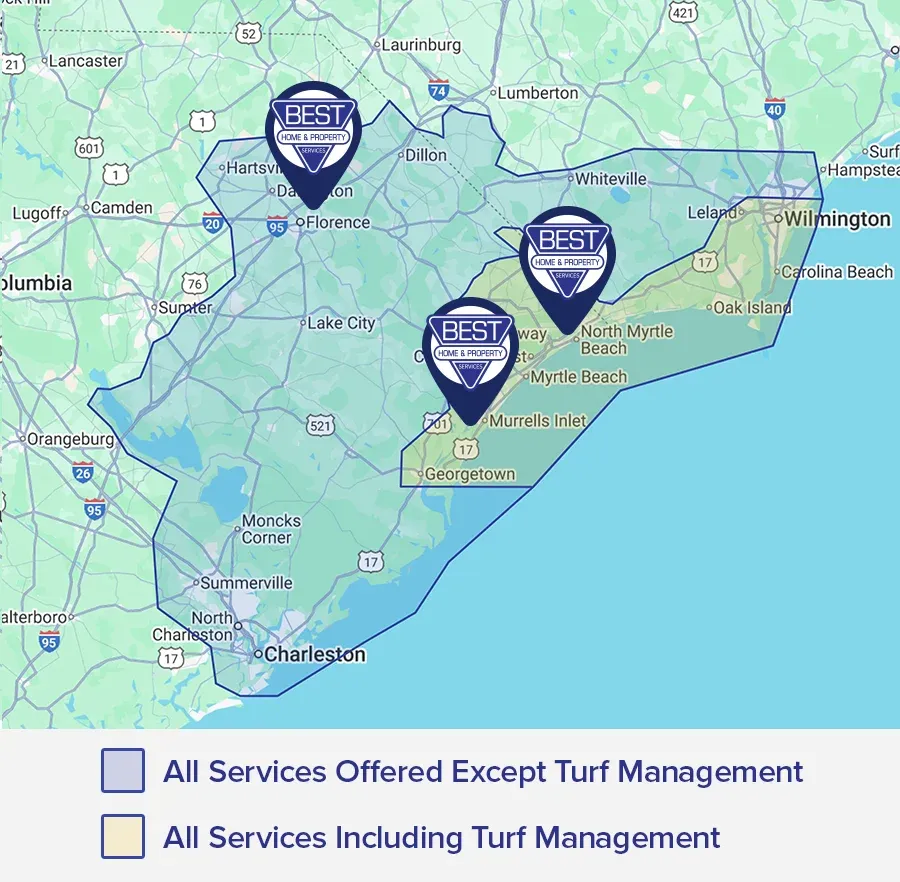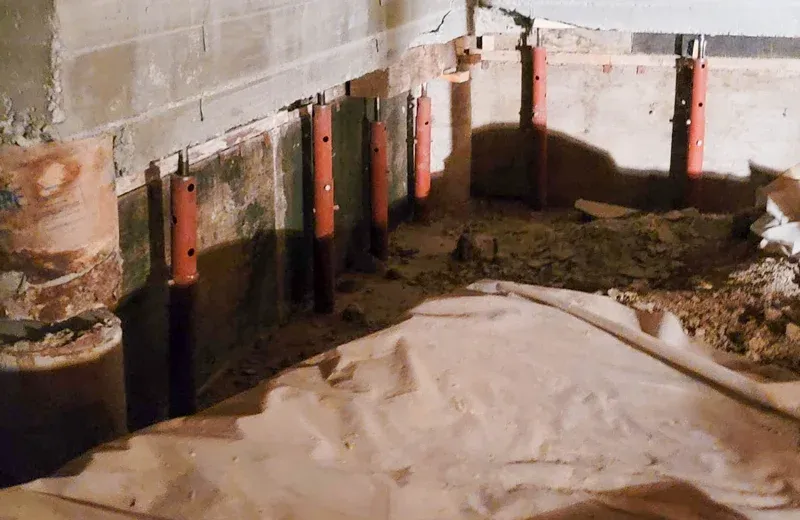Basement Waterproofing in Myrtle Beach
Is your basement turning into an indoor pool? Don't let water damage ruin your home and belongings. Best Home & Property Services's basement waterproofing service offers a comprehensive solution to keep your basement dry and protected. With 64 years of experience, we've mastered the art of transforming damp, musty basements into dry, usable spaces.
- Prevent mold growth and structural damage
- Increase your home's value and appeal to potential buyers
- Protect your belongings from water damage
- Create usable space for storage or living areas
Our expert team uses state-of-the-art Basement Systems® products to address various water intrusion issues. From perimeter drainage systems to crack repairs, we've got you covered. Most installations are completed in just 3-5 days, minimizing disruption to your daily life. Don't let a wet basement dampen your spirits – contact Best Home & Property Services today for a free, no-obligation quote and take the first step towards a dry, healthy home.
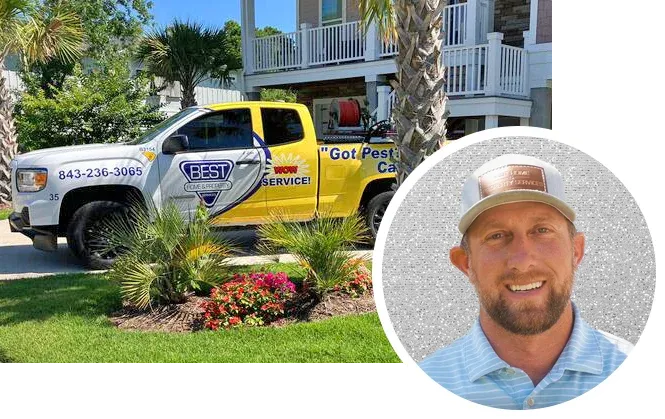
Stop Water Damage Before It Starts with Expert Waterproofing
Water intrusion and moisture problems in basements are common issues for coastal homeowners, especially those living in older properties. The humid subtropical climate, combined with frequent coastal storms, creates an environment where water can easily seep into basements through cracks, gaps, or porous materials. This moisture leads to a host of problems, including mold growth, wood rot, and structural damage, which can significantly impact your home's value and your family's health.
At Best Home & Property Services, we understand the unique challenges faced by homeowners in our region. Our comprehensive basement waterproofing solutions are designed to address these issues effectively, using cutting-edge technology and techniques tailored to our local climate conditions.
Basement Inspections and Maintenance
Regular basement inspections are crucial for the early detection of potential water issues. Our expert technicians perform thorough assessments, identifying vulnerable areas and recommending preventive measures. We also offer ongoing maintenance services to ensure your basement remains dry and protected year-round.
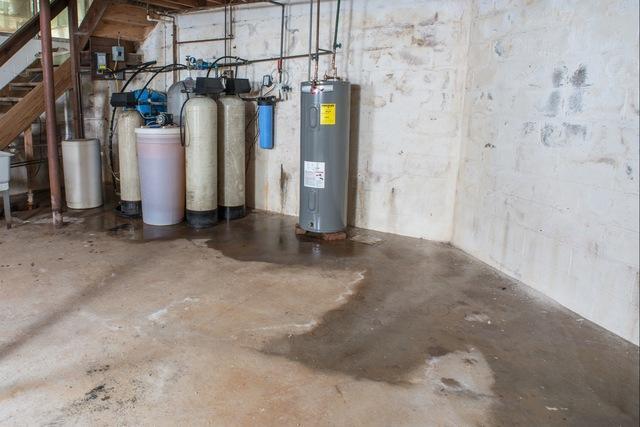
Water in the basement? Wet basements lead to mold and mildew growth, wood rot, and damage to stored items.
Our Basement Waterproofing Process
Even a small amount of water in the basement can be a concern. Whether you have leaky basement walls, water coming up through the basement floor, or leaky basement windows, water and moisture in the basement can lead to mold and mildew, wood rot, and damaged furniture and belongings. The good news is that we offer a range of basement waterproofing products and services to help solve your basement problems quickly.
Selling a home with a wet basement? A wet basement is one of the most serious "red flags" that deters buyers. A basement waterproofing system can restore value to your home and give you and potential buyers peace of mind. Our basement waterproofing systems are backed by a lifetime written warranty that's transferable to the next owner.
Our basement waterproofing solutions:
- Perimeter drainage systems
- Doorway drainage systems
- Sump pumps
- Waterproof wall and floor products
- Wall and floor crack repairs
- Water heater flood protection
- And more!
Basement Crack Repair
During the rainy season in North Carolina and South Carolina, cracks in your basement walls or floor can allow a couple of inches of water to seep or leak into your basement. We offer long-lasting solutions to waterproof your basement walls and floor, including basement crack repairs and interior drainage solutions.
Basement Flooding Solutions
When you're dealing with a flooded basement, the first step is to get rid of standing water. When the water is gone, the next step is to get your basement inspected waterproof your basement to prevent future flooding and water problems. Designed to prevent basement flooding, Best Home & Property Services installs patented interior drainage systems, industrial-strength sump pumps, and a range of waterproofing products.
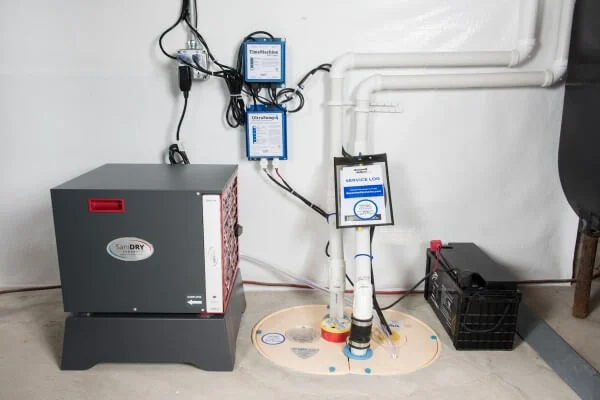
Effective water removal & protection. Clog-free drainage, a powerful sump pump, and efficient dehumidifier provide the ultimate dry basement solution.
What Causes Basements to Flood?
Did you know you can have water issues in your basement without heavy rains or obvious standing water? It's easy enough to see water coming through a crack in your floor or basement wall, but what's the real cause of your basement water problem?
The Clay Bowl Effect
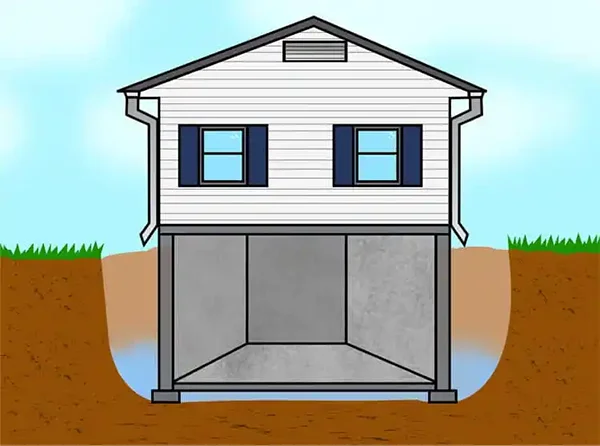
Excavated soil that's replaced around a completed foundation isn't as dense and tightly packed as undisturbed soil farther away. As a result, water collects in the soil immediately surrounding the house, putting pressure on foundation walls and causing cracks.
Hydrostatic Pressure
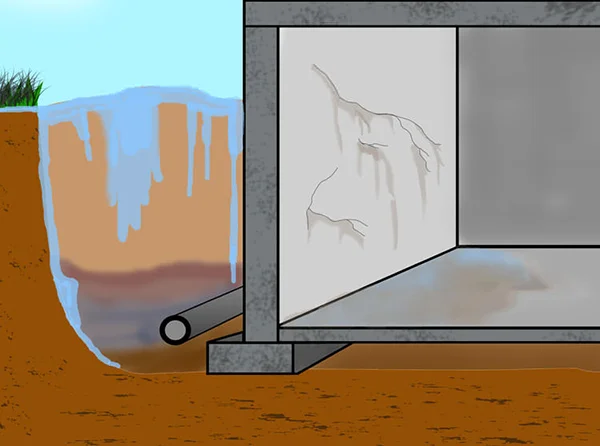
The weight of the water in the soil around the foundation exerts pressure, forcing the water through cracks, gaps, holes, and around windows leading into the basement.
Why Choose Best Home & Property Services for Basement Waterproofing
- Quality products: Basement Systems® dealers use a complete line of patented, award-winning products that have been keeping basements throughout North America dry for over 30 years.
- Fast installations: Our system installs quickly, with most projects completed in just one to two days.
-
Image

Experienced crews: A crew of experienced contractors will arrive to install your system quickly and professionally. Each one is a waterproofing specialist who dries basements every day.
- Cost-effective system: Our waterproofing system can be customized to fit your budget, and it costs about half as much as an exterior waterproofing system. Our system works for both finished and unfinished basements.
- Locally-owned and operated company: Best Home & Property Services is the locally owned and operated member of the Basement Systems network. We have products and training that simply can't be beat!
- Free waterproofing quotes: We offer free waterproofing quotes to homeowners in our service area. Our quotes come in writing, and there's no obligation!
Don't let basement water issues compromise your home's integrity or your family's well-being. Trust Best Home & Property Services to provide effective, long-lasting basement waterproofing solutions. Contact us today for a free, no-obligation assessment and take the first step towards a dry, healthy basement.
Looking For Basement Waterproofing Near You?
Proudly serving North and South Carolina for 64 years, Best Home & Property Services specializes in reliable Basement Waterproofing services. If your town isn’t listed, contact us to see if we can help!
